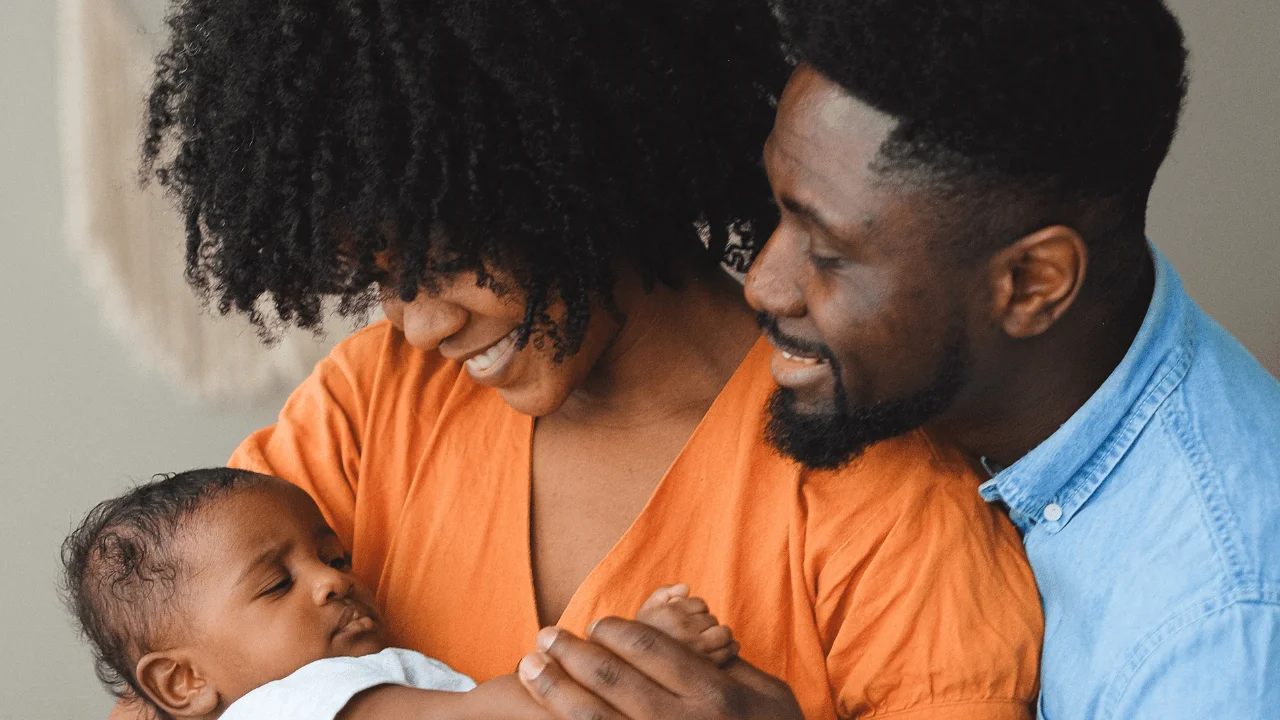
You may not realize how easy it can be to get pregnant after you’ve just had a baby, and there are some misconceptions out there about how long it takes for your fertility to return post-baby. Here’s what you need to know about your fertility postpartum, and why most major health organizations recommend waiting 12 to 18 months after giving birth to start trying to conceive again.
Can you get pregnant right after having a baby?
You can get pregnant in as little as three weeks after giving birth, even if you’re breastfeeding or don’t have your periods back yet. To prevent pregnancy after you have your baby, you have to use birth control every time.
When will your period return after giving birth?
You can get your period again from a month to over a year after having a baby. This depends largely on how you’re feeding your baby, since breastfeeding typically temporarily stops ovulation (and thus can delay your period’s return). If you’re formula-feeding, your period likely will return within six to eight weeks after giving birth. If you’re exclusively breastfeeding, it might be several months to a year before you get your period again.
Can you get pregnant before your first period arrives?
You can get pregnant before you have your first period, and many unplanned pregnancies happen just that way.
Here’s why: You’re fertile around the time you ovulate, and you ovulate about 14 days before you get your period. Breastfeeding can temporarily stop your body from ovulating for a few months postpartum (more on that later), but if you aren’t breastfeeding, you can ovulate within just a few weeks after giving birth.
Can you get pregnant while breastfeeding?
Yes, you absolutely can get pregnant while breastfeeding. Breastfeeding typically temporarily stops your body from ovulating (and thus keeps you from getting pregnant), but this is most reliable only if you’re exclusively breastfeeding with no more than four to six hours between feeds. And by six months postpartum – when your baby is eating more solids and sleeping longer at night – breastfeeding can no longer be used as birth control. (Same goes if your period comes back before then.)
If you’re still breastfeeding eight or 10 months postpartum, for example, you can get pregnant if you’re not using other forms of contraception. Some women are fertile again much more quickly, and others don’t have their fertility return until they completely wean.
To avoid a surprise pregnancy, many healthcare providers suggest that you use additional birth control methods while you’re breastfeeding. At your six-week postpartum checkup, your provider may also ask which method of birth control you’re using, but if you’ve already had unprotected sex, it may be too late.
What are the risks of getting pregnant soon after giving birth?
Growing a baby and giving birth, whether vaginally or via C-section, is hard on your body, and it needs ample time to recover before you get pregnant again. Some experts also believe that having children too close together makes it more difficult for your body to rebuild its stores of many nutrients, including folate and iron, which are crucial for development. That’s why getting pregnant again too soon comes with some serious health risks for you and your next baby. These risks include:
- Premature birth
- Low birth weight
- Placental abruption (where the placenta partially or completely comes off the wall of your uterus)
- Congenital disorders
- Maternal anemia
How long should you wait before getting pregnant again?
Most health agencies and experts recommend that you wait at least 12 to 18 months after giving birth before trying to get pregnant again. This period gives your body enough time to recover and take care of your newborn before you start the hard work of growing and feeding another baby.
However, there may be cases where it is less critical to wait that full period of time before trying to conceive again. In particular, if you’re older and concerned about waning fertility, your healthcare provider may recommend trying to conceive again after a shorter interval, as the benefits may outweigh the risks for you.
Talk to your ob-gyn about your postpartum birth control options before you give birth, or in the hospital before you go home to ensure you’re set up for success. Some forms, like the intrauterine device (IUD), implants, and even condoms can be used immediately after childbirth. However, if you want to use combined hormonal birth control methods like the pill or the patch, you’ll have to wait at least three to four weeks postpartum to reduce the risk of deep vein thrombosis (DVT).
Read more about


Add a Comment